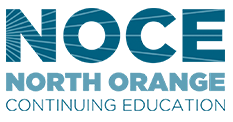
Financial aid (may be available)

Financial aid (may be available)

Financial aid (may be available)

Financial aid (may be available)
No cost info

$220 to start
$440 total

No cost info
$3,550 total
Financial aid (may be available)
OPTI Medical Systems supports the Online Quality Assurance Program (QAP) to add value to your OPTI CCA-TS2 analyzer. Online QAP facilitates the evaluation of quality control (QC) data with that of your peers for trends and shifts. Do not miss out on these valuable services that OPTI Medical provides OPTI analyzer users at no additional charge.
No cost info
The Graduate Certificate in Quality Assurance Compliance provides an in-depth knowledge of the global regulatory and compliance requirements for the development, marketing approval, and clinical utilization of biomedical products in today’s dynamic global healthcare environment.
No cost info
This program is designed for the chemist, bio-chemist or biologist in the pharmaceutical and biologic industry new to quality assurance and control, and is beneficial to senior year undergraduates and graduate students (using concurrent enrollment) interested in a career in QA/QC.
The program focuses on the quality requirements for the production and control of biologics and drugs, and the differences between quality control and quality assurance and their interaction with manufacturing. It highlights the importance of implementing and maintaining a quality system during the early stages of drug development, including the plethora of documents and controls necessary to make such a system effective. Guidelines and regulations from the FDA and the California State food and drug branch regulate the production of drug products. Quality Assurance (QA) monitors the manufacturer's compliance to these guidelines and regulations.
Instruction covers how to write, issue and control SOPs; manufacturing directions; and how to review and archive a batch history and other relevant documents. Emphasis is placed on conducting inspections and vendor audits for compliance to cGMPs to include contract manufacturers, bulk pharmaceutical chemical manufacturers and contract test laboratories. The program covers cGLPs and their applications to audits of facilities that provide toxicological services. Details on compiling, writing and archiving audit reports is provided.
No cost info
Quality assurance training helps applicants for understanding the basic concepts of information technology and software testing which help them excel as Quality Assurance (QA) specialists. The quality assurance course also covers physical products in determining defects in manufactured products and preventing them, pre-production, SDLC-Software Development Life Cycle, Production Environment vs Sandbox Environment, Mantis Bug Tracker, and many more. During the QA online training, you will learn how to decode the application of dynamic and static techniques, conduct walk-thoughts and audits, create a quality analysis, perform boundary value analysis, and test plan hands-on through this Quality assurance certification training.
No cost info
Mount St. Mary’s University is home to Maryland’s only certificate in quality assurance and regulatory science (QA/RS). The fully online program prepares you to lead your company through the efficient delivery of high-quality products within a competitive market.
No cost info
Are you interested in a career in Quality Assurance? Do you live in Atlanta and want to find quality assurance classes near you? Look no further! In this blog post, we will explore everything you need to know about quality assurance classes in Atlanta. From training requirements to what to expect in a class, we have got you covered. So let's dive in and find the perfect quality assurance class for you!

Quality assurance is a critical aspect of many industries, including manufacturing, healthcare, and technology. It involves ensuring that products or services meet the required standards and are free from defects. Quality assurance professionals play a vital role in maintaining the quality and integrity of products and services.
Quality Assurance (QA) is a systematic process that ensures products or services meet certain standards and customer expectations. It involves monitoring and evaluating various aspects of the production or service delivery process to identify and correct any issues or defects. Quality assurance professionals are responsible for developing and implementing quality control measures, conducting inspections, and ensuring compliance with industry regulations.
To become a quality assurance professional, it is essential to have the right training and qualifications. While there are no specific educational requirements for entry-level positions, most employers prefer candidates with a bachelor's degree in a relevant field such as engineering, quality management, or business administration.
In addition to formal education, there are various training programs and certifications available that can enhance your skills and increase your employability in the field of quality assurance. These programs cover topics such as quality management systems, statistical process control, quality auditing, and problem-solving techniques.
When choosing a quality assurance class, it is important to consider several factors to ensure you receive the best education and training possible. Here are some things to look for when selecting a quality assurance class:
Quality assurance classes typically involve a combination of classroom lectures, practical exercises, and group discussions. Here are some things you can expect from the day-to-day class:
Earning a certification in quality assurance can greatly enhance your job prospects and demonstrate your expertise in the field. While certification is not mandatory, it is highly recommended for quality assurance professionals. The certification process typically involves the following steps:
Once you have completed your quality assurance training and obtained certification, it is time to start your job search. Quality assurance professionals are in demand across various industries, including manufacturing, healthcare, software development, and aerospace. Here are some tips for finding a related job in quality assurance:
Becoming a quality assurance professional opens up a world of opportunities for further specialization and career advancement. Here are some other classes you may consider taking after becoming a quality assurance professional:
Quality assurance is a rewarding and in-demand career path that offers excellent growth opportunities. By enrolling in quality assurance classes and obtaining the necessary training and certifications, you can position yourself for a successful career in this field. Remember to consider factors such as accreditation, experienced instructors, hands-on training, and curriculum when choosing a quality assurance class. And for all your vocational training needs, be sure to visit Dreambound, the largest platform for students to find vocational training programs. Dreambound is dedicated to helping students find the perfect class and provides all the information you need to make an informed decision. Good luck on your quality assurance journey!
Dreambound has written many guides to help you understand what it takes to get this certification. If you're curious about the process or requirements in other states, check out our other guides below:
If you're exploring various professional paths, Dreambound has in-depth guides to help assist you. Explore a few of these resources below.
Dreambound's platform allows prospective students to find the right educational program for them through searching, filtering, and connecting with our extensive selection of career & technical education partners.
Dreambound has over 70 programs across healthcare, technology, business, and industrial trades. This includes programs such as Medical Billing, Cybersecurity, and welding.
Some of our schools offer financial aid for those who qualify. Many others offer payment plans, where you can pay the cost of class over time.
Yes, Dreambound offers many online programs. On Dreambound's search, you can filter by online, in-person, and hybrid (part online, part in-person).
Dreambound is completely free for you to use! We are supported by schools and organizations who pay to advertise on our website, so we can offer all of our career resources for free.